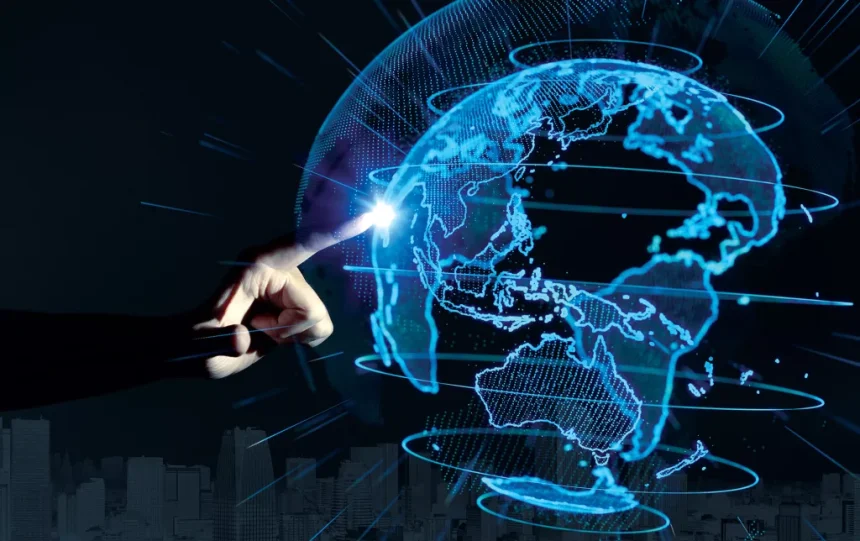Introduction
The digital world has given rise to a new kind of empire — one not built on territory, but on influence. Technology companies and global celebrities now command audiences larger than many nations, shaping culture, communication, and even politics through data and visibility.
In this new landscape, the balance of global power is shifting. From Silicon Valley to streaming platforms, control of attention has become the ultimate resource. Governments, corporations, and individuals compete to define what truth and authority mean in a connected age.
Technology as the Foundation of Global Control
Technology has become the backbone of international influence. Nations rely on digital infrastructure to manage economies, run elections, and communicate with citizens. The ones who dominate technological innovation increasingly dictate global policy direction.
Artificial intelligence, cloud computing, and satellite communication have replaced armies as tools of control. As digital systems expand, sovereignty becomes harder to define — raising new questions about who truly governs the modern world.
The Celebrity-Tech Partnership
Celebrities and technology are now deeply intertwined. Entertainers and influencers depend on social platforms to maintain global relevance, while tech firms rely on them to attract users and humanize digital experiences. This symbiosis has created a powerful feedback loop of fame and profit.
Public figures like Taylor Swift and Cristiano Ronaldo have become brands as much as artists, their every post reaching millions within seconds. Their influence often extends into political and social commentary, blurring the lines between entertainment and activism.
Politics in the Era of Digital Giants
Governments increasingly find themselves negotiating with corporations that hold more data than they do. Social media companies, for instance, shape public opinion through their algorithms — indirectly affecting elections and policy outcomes.
Some political leaders have embraced this reality by using digital platforms to connect directly with voters. Others criticize it as a threat to democracy, warning that global corporations operate without accountability or transparency. The tension between national governance and corporate influence grows stronger each year.
The Global Influence Economy
Influence itself has become a currency. The more followers, data, or digital reach an entity possesses, the more political and economic leverage it commands. This transformation has democratized fame but also concentrated power in fewer hands.
As emerging nations try to build digital economies, they must navigate a world already dominated by established tech empires. Those without access to advanced technology risk falling further behind, deepening the global inequality that the internet once promised to close.
Ethical Fault Lines in the Digital Era
Power built on algorithms comes with ethical costs. Issues such as privacy violations, data exploitation, and misinformation plague the digital ecosystem. Each scandal — from election interference to social media addiction — exposes how fragile digital ethics remain.
Celebrities and corporations alike face growing pressure to take responsibility for their influence. Advocacy for transparency, sustainability, and online integrity is no longer optional; it has become a prerequisite for maintaining public trust.
Cultural Diplomacy Through Technology
Beyond economics, technology has also become a form of cultural diplomacy. Nations use digital media to project identity and values abroad. Celebrities act as informal ambassadors, shaping perceptions of their countries through art, fashion, and activism.
At the same time, global audiences now shape what culture means. Streaming platforms blur borders, while AI-driven translation tools make content accessible to millions. The cultural exchange that once took decades now happens in seconds, transforming how the world communicates and collaborates.
FAQs
Why are tech companies compared to global empires?
Because their scale, wealth, and influence rival that of nation-states, allowing them to shape economies and societies.
How do celebrities influence politics today?
Their platforms amplify causes and shape global opinion, often influencing public policy and diplomatic discussions.
What risks come with the growth of digital power?
Concentration of control, privacy violations, misinformation, and deepening inequality between nations.
Can technology promote global equality?
Yes, but only if access and innovation are distributed fairly and not controlled by a few dominant entities.
How can governments respond to corporate influence?
Through stronger data protection laws, international regulation, and cooperation with transparent technology frameworks.
Conclusion
The digital age has created a new kind of power structure that transcends geography. Tech giants and celebrities are the architects of global narratives, redefining how societies think, consume, and interact. The challenge for the modern world is not just to adapt, but to ensure that this influence serves humanity rather than exploits it.
True progress will depend on building balance — between innovation and ethics, profit and responsibility, voice and accountability. As digital empires continue to expand, the future of freedom and fairness will depend on how wisely this power is shared.




